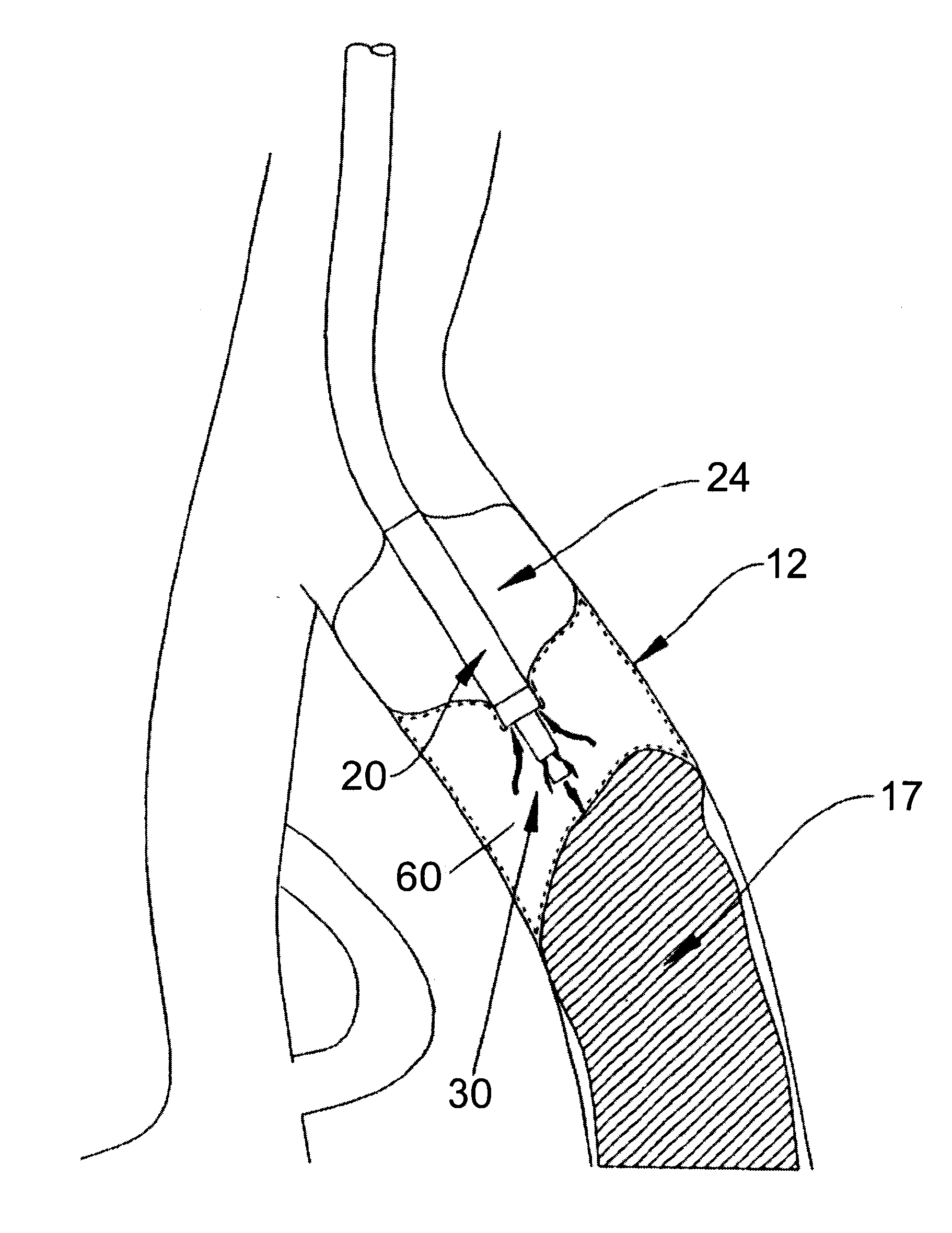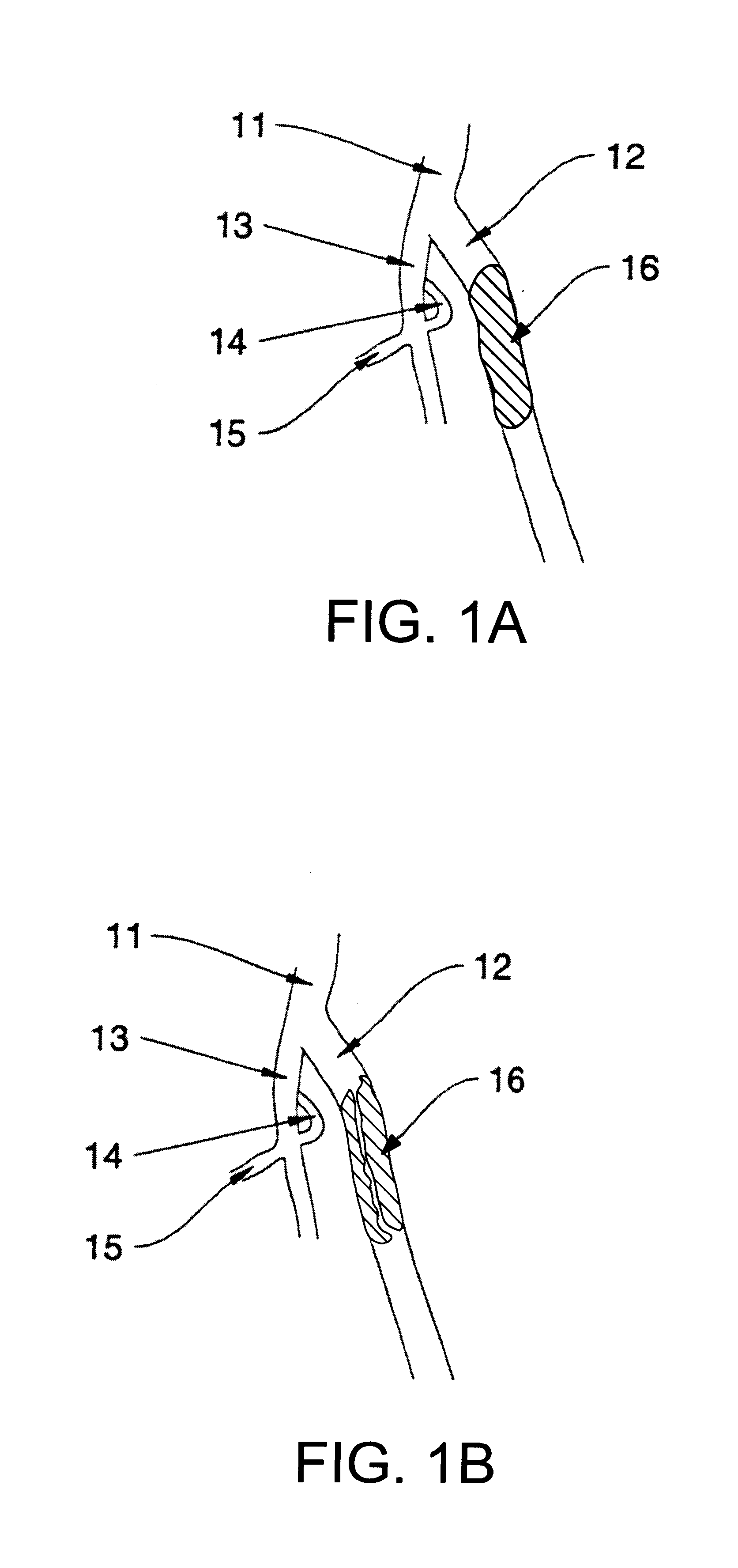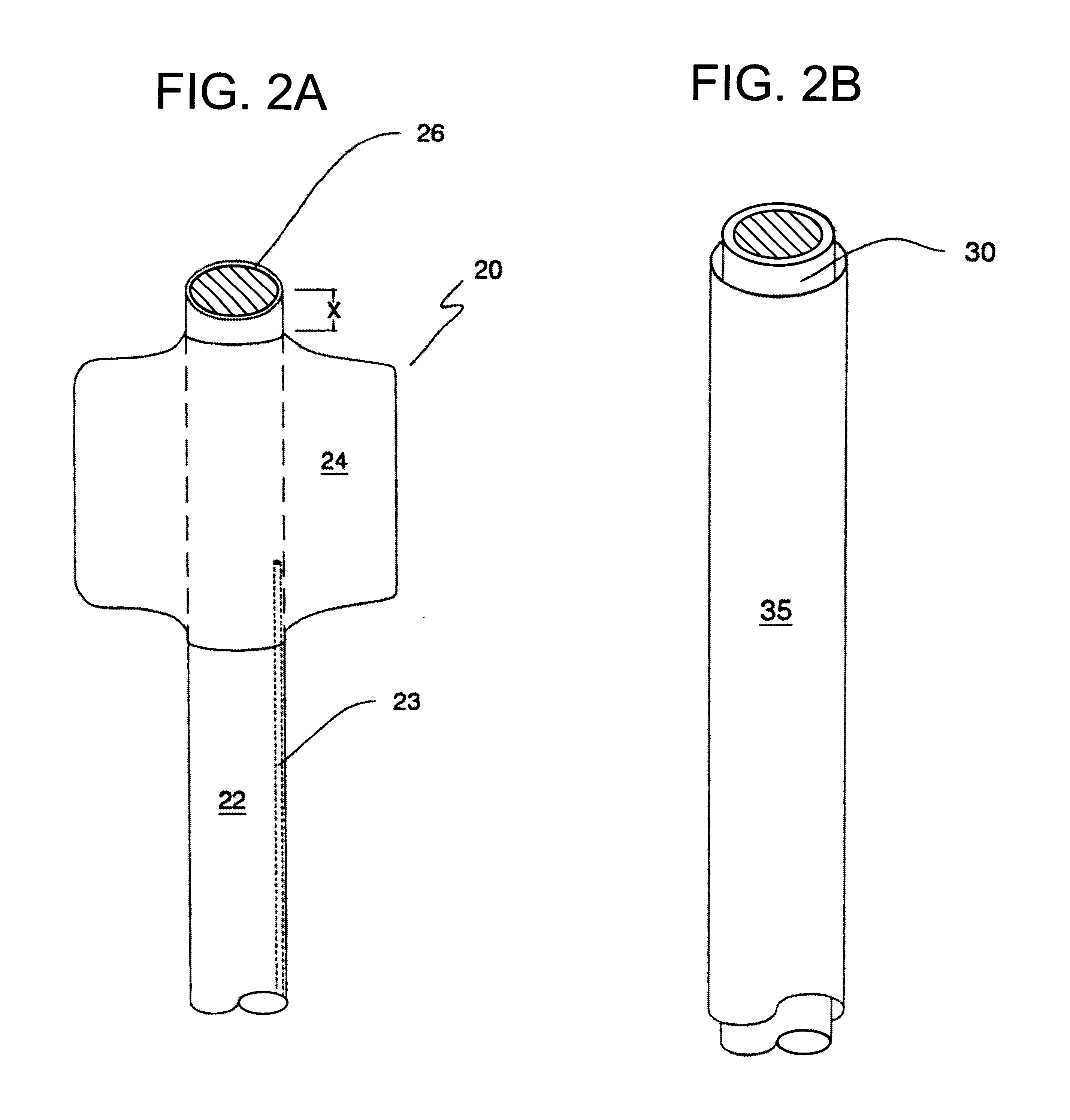Catheter devices and methods for their use in the treatment of calcified vascular occlusions
a catheter device and calcified vascular technology, applied in the field of vascular disease, can solve the problems of calcified vascular occlusions, invasiveness, tissue damage, and occlusions that have been mechanically removed, and achieve significant challenges to the current treatment methodologies
- Summary
- Abstract
- Description
- Claims
- Application Information
AI Technical Summary
Problems solved by technology
Method used
Image
Examples
Embodiment Construction
Multi-lumen catheter devices and methods for their use in enhancing fluid flow through a vascular site occupied by a vascular occlusion are provided. The subject catheter devices include at least a first, second and third lumen, where: (a) the first lumen is used for delivery of an acidic dissolution solution to the vascular site; (b) the second lumen is used for delivery of a buffer solution to the vascular site; and (c) the third lumen is used for removal of fluid from the vascular site. In many preferred embodiments, the first, second and third lumens are coaxial. In practicing the subject methods, the vascular site is flushed simultaneously with an acidic dissolution fluid and a buffer solution, where flushing is carried out in a manner such that only a surface of the vascular occlusion is contacted with the acidic dissolution fluid and the remainder of the vascular site is not contacted with fluid having a pH that is lower than about 4. Flushing is carried out in this manner fo...
PUM
 Login to View More
Login to View More Abstract
Description
Claims
Application Information
 Login to View More
Login to View More - R&D
- Intellectual Property
- Life Sciences
- Materials
- Tech Scout
- Unparalleled Data Quality
- Higher Quality Content
- 60% Fewer Hallucinations
Browse by: Latest US Patents, China's latest patents, Technical Efficacy Thesaurus, Application Domain, Technology Topic, Popular Technical Reports.
© 2025 PatSnap. All rights reserved.Legal|Privacy policy|Modern Slavery Act Transparency Statement|Sitemap|About US| Contact US: help@patsnap.com



